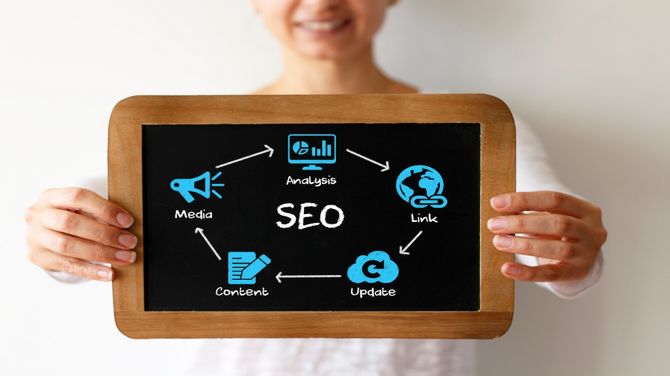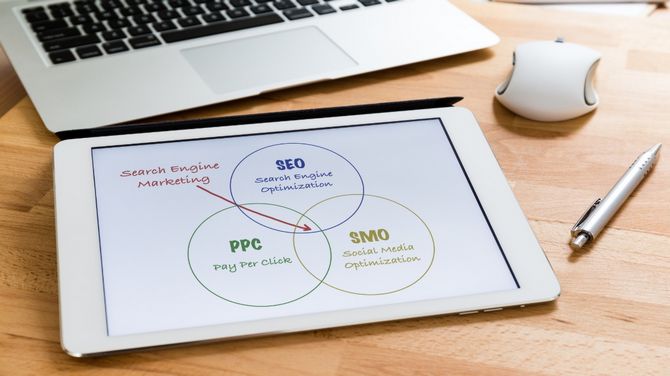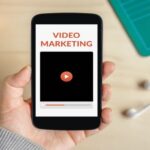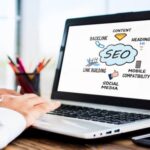When it comes to driving traffic to your website, two strategies often take center stage: SEO (Search Engine Optimization) and PPC (Pay-Per-Click). Both are powerful tools, but they serve different purposes and come with their own strengths and limitations.
If you’re trying to decide whether to focus on organic traffic through SEO or invest in paid ads with PPC, you’re not alone. Many businesses grapple with this decision. The truth is, both strategies have their place in a well-rounded marketing plan. The key is knowing when to use each one.
In this article, we’ll break down the differences between SEO and PPC, explore their pros and cons, and help you determine when to invest in organic traffic and when to pay for ads.
What is SEO?
SEO is the process of optimizing your website to rank higher in search engine results pages (SERPs) organically. This involves improving your site’s content, structure, and technical performance to make it more attractive to search engines like Google.
The goal of SEO is to drive organic traffic—visitors who find your site without clicking on paid ads. Organic traffic is highly valuable because it’s free and tends to be more sustainable over time.
What is PPC?
PPC is a paid advertising model where you pay each time someone clicks on your ad. The most common form of PPC is Google Ads, where you bid on keywords to display ads at the top of search results.
PPC allows you to target specific audiences, control your budget, and see immediate results. However, it requires ongoing investment to maintain visibility.
SEO vs PPC: Key Differences
To understand when to use SEO or PPC, let’s compare them across several key factors:
1. Cost
- SEO: SEO is cost-effective in the long run because organic traffic is free. However, it requires an upfront investment in time, resources, and expertise.
- PPC: PPC provides instant results but can be expensive, especially for competitive keywords. You pay for every click, and costs can add up quickly.
Verdict: SEO is better for long-term growth, while PPC is ideal for short-term campaigns.
2. Time to See Results
- SEO: SEO is a long-term strategy. It can take months to see significant results, but the traffic you gain is more sustainable.
- PPC: PPC delivers immediate results. Your ads can start driving traffic as soon as they’re live, but the traffic stops when you stop paying.
Verdict: PPC is faster, but SEO offers lasting benefits.
3. Traffic Quality
- SEO: Organic traffic tends to be higher quality because users are actively searching for your content or products.
- PPC: PPC traffic can be highly targeted, but some clicks may come from users who aren’t genuinely interested in your offering.
Verdict: SEO often delivers more qualified leads, but PPC can be highly effective with proper targeting.
4. Control and Flexibility
- SEO: Once your content is published, you have limited control over how it ranks. Algorithm changes can impact your visibility.
- PPC: PPC gives you full control over your ads, including targeting, budget, and messaging. You can adjust campaigns in real-time.
Verdict: PPC offers more control, while SEO requires patience and adaptability.
5. Scalability
- SEO: Scaling SEO efforts takes time and resources. You need to create high-quality content, build backlinks, and optimize your site continuously.
- PPC: Scaling PPC is easier. You can increase your budget or expand your keyword list to reach more people quickly.
Verdict: PPC is more scalable in the short term, but SEO provides long-term scalability.
When to Invest in SEO

SEO is ideal in the following scenarios:
1. You’re Building a Long-Term Strategy
If you’re focused on sustainable growth, SEO is the way to go. Organic traffic builds over time and can deliver consistent results for years.
2. You Have a Limited Budget
While SEO requires an upfront investment, it’s more cost-effective in the long run compared to ongoing PPC costs.
3. You Want to Establish Authority
Ranking organically helps establish your brand as an authority in your industry. It builds trust and credibility with your audience.
4. You’re Targeting Non-Commercial Keywords
SEO is great for targeting informational or educational keywords that may not convert immediately but build awareness and trust.
Example: A blog post targeting “how to choose the right CRM software” can attract organic traffic and nurture leads over time.
When to Invest in PPC
PPC is the better choice in these situations:
- You Need Immediate Results
If you’re launching a new product, running a time-sensitive promotion, or need quick visibility, PPC can deliver fast results. - You’re Targeting Competitive Keywords
For highly competitive keywords where ranking organically is difficult, PPC can help you secure top positions. - You Want to Test New Markets
PPC allows you to test new keywords, audiences, or markets without committing to long-term SEO efforts. - You Have a High Budget
If you have the budget to invest in paid ads, PPC can complement your SEO efforts and drive additional traffic.Example: A retail store running a holiday sale can use PPC to target keywords like “Christmas gift ideas” and drive immediate traffic.
How SEO and PPC Can Work Together
While SEO and PPC are often seen as competing strategies, they can actually complement each other. Here’s how:
- Keyword Insights
PPC campaigns can provide valuable data on which keywords drive conversions. You can use this information to optimize your SEO strategy. - Increased Visibility
Combining SEO and PPC can help you dominate search results. For example, you can rank organically for a keyword while also running a paid ad for the same term. - Retargeting Opportunities
Use PPC to retarget users who visited your site through organic search but didn’t convert. This can help you capture lost leads. - Testing and Validation
Use PPC to test new keywords or landing pages before committing to long-term SEO efforts.
Real-Life Examples
- SEO Success: HubSpot
HubSpot’s blog ranks for thousands of keywords, driving massive organic traffic. Their SEO strategy focuses on creating high-quality, educational content that builds trust and authority. - PPC Success: Airbnb
Airbnb uses PPC to target competitive keywords like “vacation rentals” and “short-term stays.” Their ads drive immediate traffic and bookings, especially during peak travel seasons.
Common Mistakes to Avoid
For SEO:
- Ignoring technical SEO (e.g., site speed, mobile optimization).
- Focusing only on keywords without creating valuable content.
- Neglecting backlinks and off-page SEO.
For PPC:
- Bidding on irrelevant keywords.
- Failing to optimize landing pages for conversions.
- Not tracking ROI or adjusting campaigns based on performance.
Final Thoughts
Both SEO and PPC are essential components of a successful digital marketing strategy. SEO is your go-to for long-term growth, brand authority, and cost-effective traffic. PPC, on the other hand, is perfect for quick wins, testing new markets, and targeting competitive keywords.
The best approach is to use both strategies together. Start with SEO to build a strong foundation, and use PPC to fill in the gaps and drive immediate results. By understanding the strengths of each, you can create a balanced strategy that maximizes your reach and ROI.
So, whether you’re investing in organic traffic or paying for ads, the key is to align your efforts with your goals, budget, and timeline. With the right mix of SEO and PPC, you can drive traffic, generate leads, and grow your business effectively.






